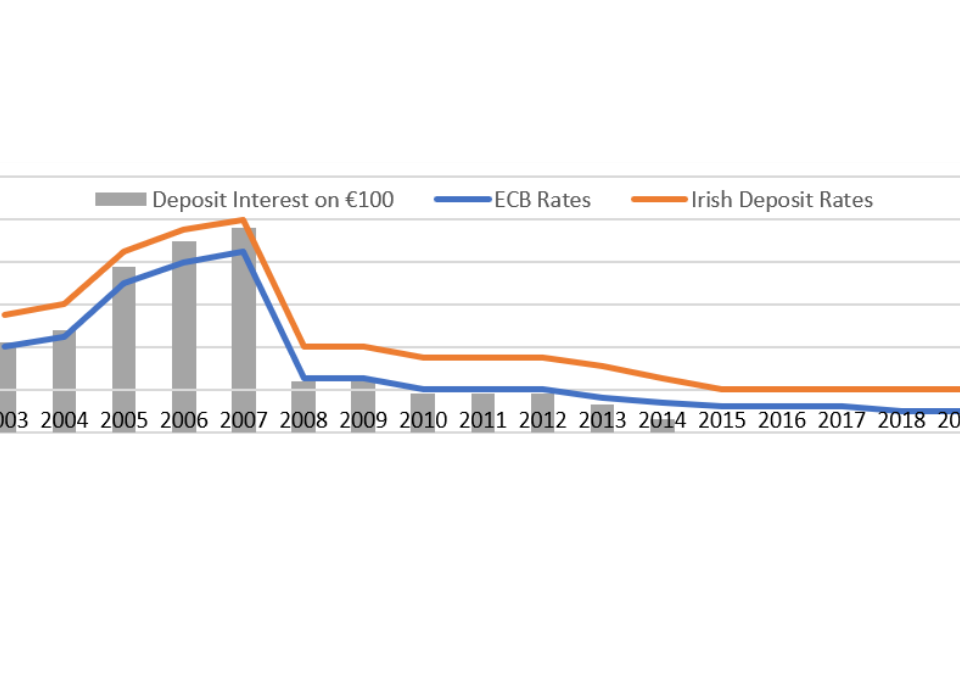11 Steps to Escaping The Rental Trap so You Can Own Your Own Home!
11 Steps to Escaping The Rental Trap so You Can Own Your Own Home!

In many parts of the country, it is now twice as expensive to rent a small apartment or home than to pay a mortgage on it. It’s more expensive to rent a two-bed or three-bed home than to pay a mortgage on such a property anywhere in Ireland. These findings – from daft.ie’s latest report on rental prices – are further evidence of the runaway rents facing tenants today. The findings also make it clear that for many it makes more financial sense to buy a property than to rent one. So how can you get out of the rental trap and onto the property ladder?
1.) Start Saving
“For a lot of people who are trying to get out of the rental trap, it’s the house deposit that’s the problem, the only way to get your deposit together is to save it – or to get help from your parents. Start saving at a level you are comfortable with and then increase the amount you are saving on a regular basis.
2.) Move Back Home.
Unless you’re earning well above the average wage, it could take several years or more to save up the deposit for a home – if you’re renting. Moving back in with your parents – if this is an option – could be your only realistic chance of saving up a house deposit within a few years.
3.) Get a Handout.
Half of those expecting to buy their first home say they will need financial help from their parents, according to recent research commissioned by Bank of Ireland. Should you be planning to get a lump sum from your parents, be aware of – and be sure to limit – any gift tax implications of such a handout. Be aware too that banks will usually only accept a parent’s contribution towards the house deposit if that money is a gift and does not have to be repaid.
4.) Get a State Dig-Out.
For many FTBs, the Government-backed scheme, the Rebuilding Ireland Home Loan (RIHL) is their best chance of getting a mortgage – although the scheme is in need of more funding. The aim of the RIHL scheme is to make it easier for FTBs who earn too much to qualify for social housing, but too little to get a sufficient mortgage from a bank to buy their own home.
The interest rate on the RIHL usually works out much cheaper than the mortgage interest charged by banks – though concerns have been expressed about the cost of mortgage protection insurance under the scheme. Furthermore, you can usually borrow more through the RIHL than you would from a bank. Although discussions to secure a second tranche of funding for the RIHL scheme are ongoing, a Department of Housing spokesman said: “The scheme remains open and all local authorities have been advised to continue to receive and process applications up to and including the issuing of loans.”
Don’t overlook the Government’s Help to Buy scheme either. This scheme, which offers FTBs a tax rebate of up to €20,000 on the purchase price of a new home, is due to run out by the end of this year. Unless it is extended, FTBs will have to sign a contract to purchase a property by this December 31 – or their application for a rebate under the Help to Buy scheme will expire. FTBs who are self-building must have drawn down the first part of their mortgage on or before December 31, 2019 to qualify for a rebate.
FTBs who apply for the Help to Buy scheme between October 1 and December 31 will however be able to make a claim by the end of March 2020 to be eligible for the rebate. “It should be noted, however, that the time frame for entering into a contract to purchase a property or to have drawn down the first tranche of a qualifying loan does not change,” said a Revenue spokeswoman.
5.) Get an Exception.
Should you be planning to buy a house in 2020, apply for your mortgage by the end of March 2020, advised Trevor Grant, chairman of the Association of Irish Mortgage Advisers. By doing so, you should boost your chances of getting an exemption to the Central Bank’s lending rules, according to Grant. With these exemptions, you can borrow more than the Central Bank rules stipulate. However, as the banks can only grant a certain number of exemptions each year, exemptions can dry up very quickly.
“Typically, exemptions are available between November to December of a given year – until April or May of the following year,” said Grant. “After that period, it’s hard to get an exemption. So, if you want to buy in 2020, apply for a mortgage by the end of March 2020 at the latest.”
6.) Record Paying Your Rent.
You must be able to prove that you have the ability to repay your mortgage. So over the last six to 12 months, you must have either saved or paid rent equivalent to the repayments on the mortgage you are seeking – and have evidence (such as bank statements) to prove that.
Be sure to have an acceptable record of the rent you have paid – particularly if paying in cash. “Rental payments need to be documented – and this can be difficult to do if you’re paying in cash or are in a house share and giving your share of the rent to another tenant,” said Grant.
The easiest way to prove to your bank that you have paid rent regularly is by paying your rent by direct debit or standing order – and providing your bank with statements which show those payments. Your lender should also accept a rent book which is signed by your landlord as proof of your rental payments – if you pay in cash.
7.) Tidy up your Finances.
Banks go through your current account – and other bank – statements with a fine-tooth comb when you apply for a mortgage. Any evidence of overdrafts, lavish credit card spending, loan arrears, or an inability to pay bills or make ends meet will be frowned on.
So if you have any financial vices, address them now so that you have a clean financial slate by the time you apply for a mortgage. “If there’s anything out of kilter with your finances, the earlier that’s addressed, the better,” said Grant.
8.) Move County.
The cheapest counties to buy a home in are Longford, Roscommon, Sligo and Leitrim, according to daft.ie’s latest house price report. In these – and a number of other counties – it is possible to buy a house for half the price of a Dublin one. For those living and working in Dublin, a move to the country might not be an option. However, if you can secure a well-paid job – and have any family or friends – in a county where it is more affordable to buy, a move could work. Commuting to Dublin is the other option – but fully understand the commute involved, and its impact on your lifestyle, before taking it on.
9.) Get it Tax-Free.
Be sure you qualify for the dwelling house exemption – a tax break which allows houses to be inherited tax-free – if your parents are planning to pass the family home onto you. In most cases, this exemption can only be used to pass on a property tax-free if the individual passing that property on has died – unless the house is being gifted to a dependent relative. In other words, the dwelling house exemption can now largely only be used for inheritances. Should your parents wish to gift you the family home while they are still alive even though you’re not eligible for the dwelling house exemption, be aware that a child can be gifted a property worth up to €320,000 from his parents tax-free – as long as he has not received any other gifts or inheritances from his parents over his lifetime. “The child and parents should fully understand the tax implications of passing on the family home,” said Oonagh Casey-Grehan, tax partner with Fagan & Partners. “If a child doesn’t qualify for the dwelling house exemption, the passing on of the home could trigger a large tax bill – and the child may not be in a position to hold onto the house as a result.”
10.) Watch-Out for Capital Gains Tax!
Parents could be landed with a Capital Gains Tax (CGT) bill if they gift their home to a child while they are still alive – even if the parents give the property to the child for free. “If the parents have always lived in the house, there’s shouldn’t be a CGT issue as the Principal Private Residence (PPR) exemption applies,” said Casey-Grehan. With the PPR exemption, you are exempt from CGT when you sell or dispose of a property – if that property was your main residence while you owned it. “There could be a CGT bill if the parents haven’t always lived in the family home – if for example they had rented it out at any stage while they owned the home,” said Casey-Grehan. There is no CGT on death (that is, when parents pass on the family home to a child after they die).
11.) Avoid Family Rifts.
Where the family home is being passed onto one of a number of children, it’s important this is discussed with other siblings in the family. “It can cause quite a bit of rancour if one sibling is favoured over the others,” said Casey-Grehan. One way to alleviate tension could be to leave the home to one child on the condition that he or she buys out the siblings’ shares of the home. Attaching conditions to an inheritance however can cause difficulties. “Get the family involved if planning to will the property to one child, be clear about what you want to do with all children, and listen to the concerns of all children,” said Casey-Grehan.



